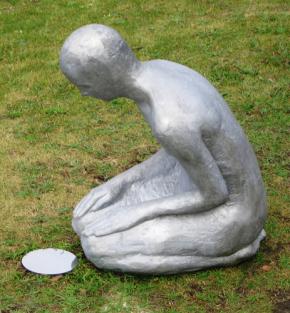Fr Charles Rue wrote "St Francis the courteous one" as part of three articles on Eco-Spirituality and St Francis of Assisi
On 4th October we celebrate the feast day of St Francis of Assisi. In 1979 Pope John Paul II declared him the Patron Saint of Ecology. What were his reasons?
Born Giovanni Francesco di Bernardone (1181-1226) Francis was the son of a wealthy cloth merchant. Francis adopted a high-spirited life and with his young friends paraded around the streets of Assisi singing in the style of the French troubadours. Adventure too was in their step and Francis joined a military expedition against Perugia in 1201. Held as a prisoner for a year the venture proved to be a reality check. Francis fell ill, entered a period of withdrawal, underwent a conversion and began a search for more in his life. 
Francis first rejected the luxurious ways of his family and Assisi. He then went on a pilgrimage to Rome living as a beggar. He returned to Assisi and began working to repair a country chapel. Poverty became his loving companion as he travelled around the district preaching in the streets of simplicity in Jesus - the dependent infant before he gave his life on the cross as saviour.
Searching led Francis to become what we now call ‘counter-cultural’. Having abandoned the splendour of cathedrals this disillusioned young man searched for a new way to express his experience of God, neither loud nor certain of the details, but clear in his vision that simplicity of life was central to his search.
A Franciscan Missionary Sister told me that the best word for her in English to capture the spirit of Francis was courtesy. It is an old-fashioned word but it is about respect for the other. Courtesy was the way Francis related to all God’s creatures, human and in nature. This was at the root of his contemplation and spirituality, the way he became a mystic.
One could imagine a modern Francis as an assistant in a scientific research station. Why scientists become so excited about some frog or beetle often perplexes us. But there is a spiritual quality to the excitement of discovery that many ecological scientists display. A Francis attitude would immediately link this excitement and wonder to God.
Young friends Francis knew from his earlier days in Assisi were attracted by his simplicity and style of life. Simplicity is a word that now carries tones of stupidity and lack of success yet Francis was no softie. There was logic in the way he judged as shallow the showy lifestyle of the Assisi elite. There was strength in his decision to reject their way and choose a simple way of life. He harnessed his feelings of revulsion for the lure of riches and trusted the truth his feelings told. His revolution was more than a simpleton’s protest.
With his companions, Francis became a traveller, constantly on the road preaching and singing the praises of God. They started a movement of itinerant preachers which was a revolution in church practice. Within a few decades, the Dominicans followed. The context was a period of church reform and the tone of the 1215 Lateran Council had to have been influenced by those who came to be known as Franciscans. Many became famous theologians.
Francis set a simple rule based on the mission of the Twelve in Matthew Ch.10 - to be poor and to be in the world. Francis was ordained a deacon so could legitimately preach. He and his friends spread joy and their call to repentance was a call to love lady poverty and rejoice in simple living.
The movement Francis started spread to neighbouring counties in Europe and even after the Reformation he remained as an ecumenical saint. There can be ridicule cast on him as the patron of flower shows or the blessing of animals. But these devotions challenge self-appointed sophisticates and gently proclaim the giftedness of all life.
This is the International Year of Cooperatives. In a time of sophisticated banking deals, members of cooperatives and Credit Unions are celebrating the simplicity of local finance and mutual help among people they know. The spirit of Francis is alive among these people who know what poverty means but use it as a catalyst to grow deep local relationships, care for the less fortunate, and being grateful for earth’s gifts.
Returning to the question posed at the beginning of this article, What reasons did Pope John Paul II have for declaring St Francis as the Patron Saint of Ecology? We all know well the many environmental problems we humans have caused – pollution of rivers, threats to the Great Barrier Reef, climate change – but the Pope says these problems are at base a spiritual problem. He called on St Francis to help us be less demanding of the earth and with simplicity appreciate with joy its multitude of gifts.
Published in the Leader Sept-Oct 2012 by Fr Charles Rue SSC.
Related links
- Read more JPIC Articles on St Francis and Ecology

Comments (0)